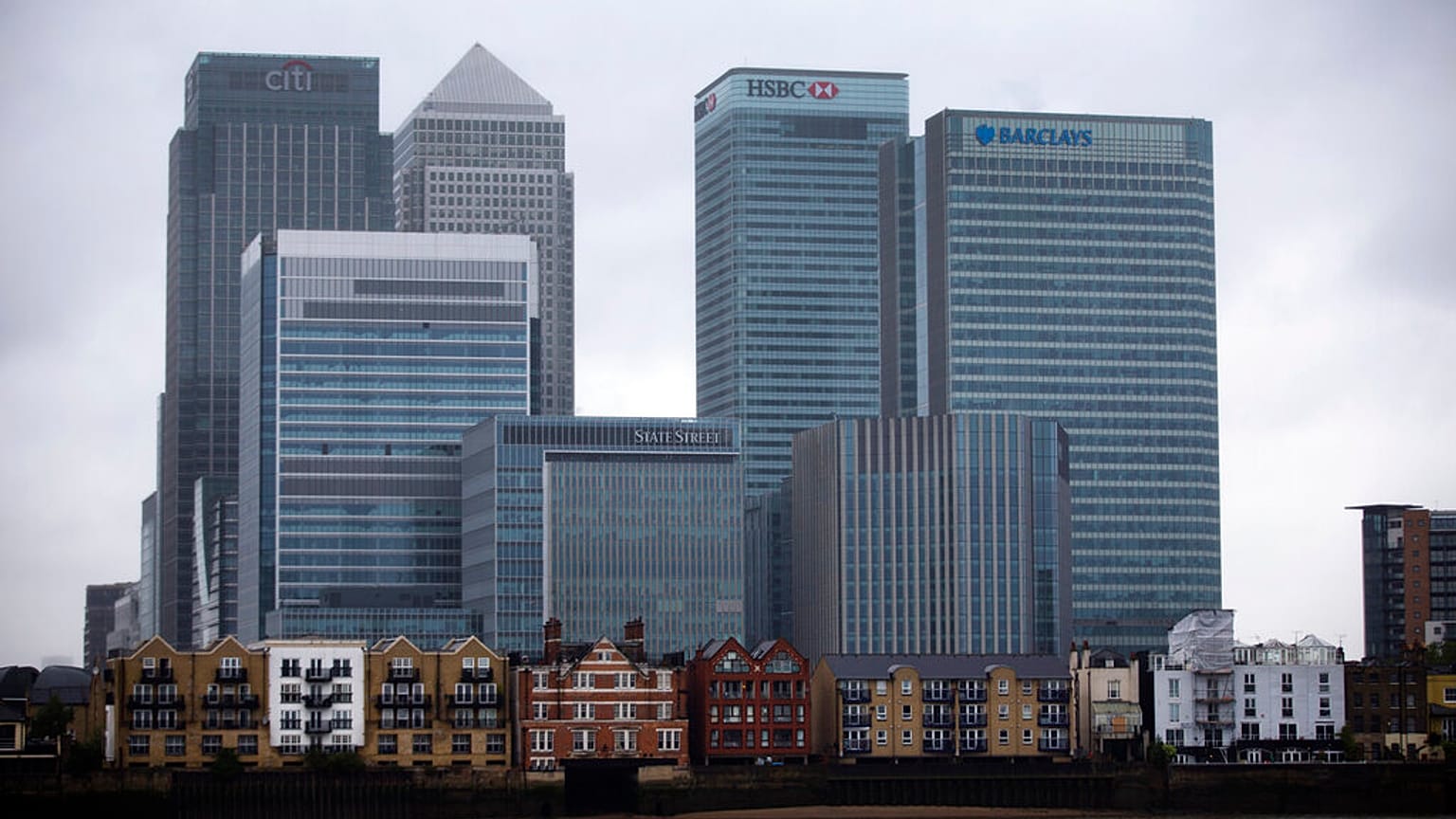Business
UK Bank Shares Plunge as New Tax Proposal Raises Concerns

UK bank shares experienced significant declines amid fears of a proposed new tax on the sector. Major financial institutions, including Barclays, Lloyds, and NatWest, saw their stock prices drop sharply following discussions about potential taxation aimed at addressing a substantial budget shortfall.
By midday on March 15, 2024, NatWest’s shares had fallen by more than 4.7%, while Lloyds and Barclays recorded declines of 4.5% and 3.7%, respectively. This downturn contributed to a decrease in the benchmark FTSE 100 index, which was down nearly 0.4% at the time of reporting.
Proposed Tax to Address Budget Deficits
The potential tax proposal originated from the Institute for Public Policy Research (IPPR), which suggested taxing commercial banks to help cover the estimated £22 billion (€25.4 billion) annual cost associated with the Bank of England’s quantitative easing programme. This programme, aimed at stimulating the economy through extensive government bond purchases, has faced challenges as interest rates rose from near zero to a peak of 5.25% since December 2021.
Investment director Russ Mould from AJ Bell commented on the situation, stating, “NatWest, Lloyds, and Barclays were the FTSE 100’s biggest fallers on Friday morning as investors wondered if the era of bumper profits, dividends, and buybacks is now under threat.” He highlighted concerns that taxing the banks might hinder growth by reducing their ability to lend to businesses and households.
Public Sentiment and Future Implications
While the government has yet to clarify its stance on the proposed tax, analysts have noted that public sentiment could lean towards supporting increased taxation of banks. Mould pointed out that major banks like HSBC, Barclays, NatWest, and Lloyds are projected to generate approximately £44 billion (€50.7 billion) in global earnings by 2025, marking their third-best financial year.
These banks have seen a robust performance in the stock market in recent years and have played a crucial role in providing loans to both small and large enterprises, thereby supporting job creation and overall economic stability in the UK. As discussions around the new tax continue, the balance between government revenue needs and the health of the banking sector remains a pivotal issue in the economic landscape.
-

 Top Stories3 months ago
Top Stories3 months agoTributes Surge for 9-Year-Old Leon Briody After Cancer Battle
-

 Entertainment4 months ago
Entertainment4 months agoAimee Osbourne Joins Family for Emotional Tribute to Ozzy
-

 Politics4 months ago
Politics4 months agoDanny Healy-Rae Considers Complaint After Altercation with Garda
-

 Top Stories4 months ago
Top Stories4 months agoIreland Enjoys Summer Heat as Hurricane Erin Approaches Atlantic
-

 World5 months ago
World5 months agoHawaii Commemorates 80 Years Since Hiroshima Bombing with Ceremony
-

 Top Stories3 months ago
Top Stories3 months agoNewcastle West Woman Patricia Foley Found Safe After Urgent Search
-

 Top Stories5 months ago
Top Stories5 months agoFianna Fáil TDs Urgently Consider Maire Geoghegan-Quinn for Presidency
-

 World5 months ago
World5 months agoCouple Convicted of Murdering Two-Year-Old Grandson in Wales
-

 World5 months ago
World5 months agoGaza Aid Distribution Tragedy: 20 Killed Amid Ongoing Violence
-

 World5 months ago
World5 months agoAristocrat Constance Marten and Partner Convicted of Infant Murder
-

 Top Stories4 months ago
Top Stories4 months agoClimbing Errigal: A Must-Do Summer Adventure in Donegal
-

 Top Stories4 months ago
Top Stories4 months agoHike Donegal’s Errigal Mountain NOW for Unforgettable Summer Views









